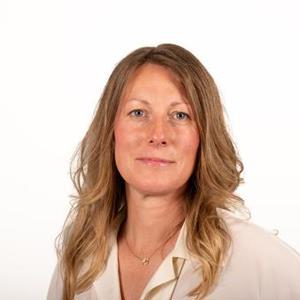“One key question is what type of data is required to understand how the flow can be as effective as possible. Most things in the healthcare organisations are measured, but there are no methods available to manage all the information in a way that is useful”, says Malin Wiger, newly graduated doctor and researcher at Logistics and Quality Management, Linköping University.
Healthcare guarantee
There are, however, some good examples.“Maternity care is a shining example in several ways: there is a well-defined process here that is suitable for nearly all cases. They manage the exceptions as individual cases, rather than managing all cases as exceptions. And they aren’t governed by a healthcare guarantee and the problems that it brings”, she says.
The healthcare guarantee was instituted to shorten healthcare waiting times. The hospitals focus on ensuring that a certain number of patients undergo surgery within a certain number of days. The problem is that the period is counted from the time at which all investigations have been completed, and not from the time at which the patient first contacts the healthcare organisation.
“The healthcare guarantee increases lead times, and this means that it has an opposite effect from what was planned. It doesn’t provide any incentive to cut down lead times, either”, says Malin Wiger.
Healthcare a social system
In her doctoral project she has regarded healthcare organisations as social systems, and has subsequently coupled system theories with the theories that are used within logistics. This is the purely theoretical basis of the thesis work. She has then carried out many interviews to find out how the system works, from the first contact of the patient with the healthcare system until the last. She has investigated the path that patient cases take to the ward, how the transfer proceeds, how care planning is carried out, the subsequent destination of the patient case, and so on.Most interesting from a flow-analysis perspective are the transfers, since the healthcare organisations are currently divided according to medical speciality. Even if every ward works as rapidly as it can, the flow between wards doesn’t work well. This is true both for the patient cases and for information”, says Malin Wiger.
No one has overall responsibility for the system, and it is here that major benefits can be won, according to the thesis.
“The healthcare system is a system just like the human body. A change in one part affects other parts of the system. In the healthcare system, many interacting units are striving towards the same goal: cost-effective patient care. At the moment, however, they all act as isolated efficient islands. A patient may have been in the system for months, but even so the next element along the chain of care knows nothing about him or her.”
Patient confidentiality is, of course, an important factor, but Malin Wiger doesn’t see any reason that information about the individual patient needs to be available in order to form the basis for planning. What is principally needed is summary data, aggregated data, that demonstrate patient flows through the healthcare system with time.
“Healthcare is technically advanced and highly specialised, and no one can manage to control it with just pen and paper. Analysis and strategic planning are needed, and a well-functioning flow of information between the different units”, she says.
An issue for the management
Healthcare organisations must be made more effective, and this is fully possible. But it’s not a case of working faster: what’s needed is working smarter and taking care of fundamental mechanisms of logistics. The thesis shows how it is possible to analyse and get to know how things work, in order to achieve higher care chain effectiveness. Effective care chains also lead to better patient flows. The challenge lies in being able to use the economies of scale for high medical quality offered by central operations while maintaining sufficient flexibility to be able to share resources and provide care rapidly.“Increasing effectiveness is an issue for the management, but the nurses must deal with this in their day-to-day work. They are subject to a requirement to work efficiently, but are not told how. They are to focus on doing a good job in their encounter with patients, and they must be able to know that they have done a good job during the day”, says Malin Wiger.
She sees her thesis as a call for the healthcare organisations to adopt and use knowledge in logistics in order to understand how the flow of patients can become more effective and waiting times shorter.
“Decision-makers in healthcare organisations are interested in these issues, but insight into the knowledge required is growing far too slowly. It’s also tricky to communicate that it’s not simply a case of admitting patients through one door and discharging them through another. They have to learn to see the total patient cases, and construct flows based on this.”
Malin Wiger hopes to continue conducting research in healthcare logistics, and is planning a project looking at multimorbid older people.
“Several different units within the healthcare system must work together in such cases, but there are currently no ways to achieve this”, she says.
The thesis: Logistics Management Operationalised in a Healthcare Context – Understanding Care Chain Effectiveness through Logistic Management Theories and Systems Theory, Malin Wiger, Logistics and Quality Management, Department of Economic and Industrial Development, Linköping University 2018.
Principal supervisor: Professor Mats Abrahamsson.
Translation George Farrants

